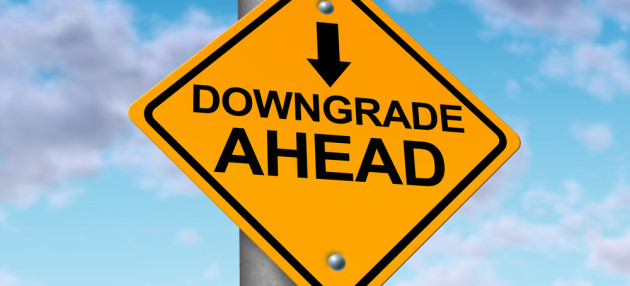Moody’s has placed the ratings of 12 oil exporting countries on its watch list for a possible downgrade. The list of countries (which includes Nigeria) are as follows; Abu Dhabi(Aa2), Angola(Ba2), Gabon(Ba3), Kazakhstan(Baa2), Kuwait(Aa2), Nigeria(Ba3), Papua New Guinea(B1), Qatar(Aa2), Russia(Ba1), Saudi Arabia(Aa3), Trinidad & Tobago(Baa2), United Arab Emirates(Aa2).
Nigeria which is currently on a rating of Ba3 could see its rating fall by a “notch” if it reviews conclude that a downgrade is necessary. Moody’s also explained what could get Nigeria a downgrade.
WHAT COULD RESULT IN A DOWNGRADE
Moody’s would downgrade Nigeria’s Ba3 rating if the review were to conclude that the government’s plans are unlikely to be adequate to sustain Nigeria’s economic or government balance sheet strength. A downward rating adjustment for Nigeria would most likely be limited to one notch.
Signs of acute fiscal or balance-of-payments deterioration would also exert downward pressure on the rating. However, in the case of Nigeria, those risks are rather limited as the government’s total debt is estimated at 13.6% of GDP in 2015 and compares very favourably with peers. Similarly, external debt for the country is small and likely to increase while remaining at around 6% of GDP over the next few years. Additional signs of external pressure might include a further fall in the price of oil, sustained capital outflows and pressure on the exchange rate and foreign-currency assets. Deterioration in the domestic or regional political environment, resulting in disruptions to oil production and/or foreign investments in the economy, would also be credit negative.
To avoid getting a downgrade, the ratings agency also outlined pointers that it expects to see if Nigeria’s ratings were to remain stable.
WHAT COULD STABILIZE THE RATING AT THE CURRENT LEVEL
Moody’s would maintain and confirm Nigeria’s current Ba3 rating if the rating review were to conclude that the government’s plans represent a clear, credible fiscal and economic policy response, which offers the prospect of containing the deterioration in the government balance sheet to contain the impact of the sharp fall in the oil price.
From all indications, Nigeria could avoid a rating downgrade if the Buhari government gets its act together and presents an economic plan that excites investors. The government will also need to pass its 2016 budget even if it means doing so in parts while weeding off aspects of the budget that was controversially padded. The Buhari government has been in power for about 10 months now and have yet to put together a coordinated economic plan that puts the economy on the path to recovery.
The government has been slow to put its economic message across only appointing ministers nearly six months after it was inaugurated. The government has also come under sever criticism of its handling of the currency crisis that has now widened the disparity between the official and parallel market rates of the dollar/naira.











An economic plan that excites investors? Moody’s quite clear:
“Moody’s would maintain and confirm Nigeria’s current Ba3 rating if the rating review were to conclude that the government’s plans represent a clear, credible fiscal and economic policy response, which offers the prospect of containing the deterioration in the government balance sheet to contain the impact of the sharp fall in the oil price.”
Exciting investors has NOTHING to do with it.
10 months after and the government is yet to put in place an economic plan?
What planet are you from?
You have seen the budget.
You have seen his stance on exchange rates, imports and exports.
You have heard of the economic activities he is trying to promote and those he is trying to discourage.
I don’t know what more you need